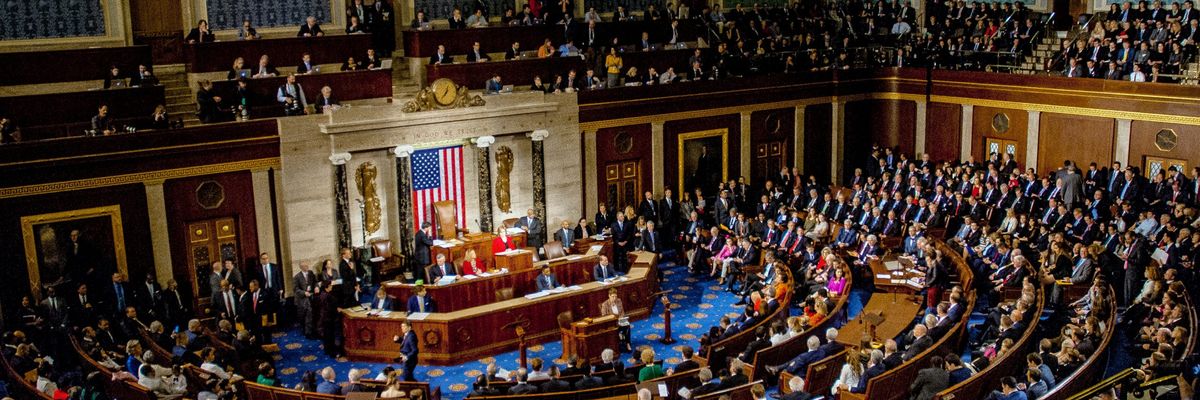The House of Representatives passed one of its first pieces of legislation under Speaker Mike Johnson (R-La.) on Thursday, approving a bill that provides $14.3 billion in aid for Israel, money that is offset by cuts to the Internal Revenue Service (IRS).
The measure passed by a vote of 226-196 with twelve Democrats voting for the bill and two Republicans voting against.
Johnson had gone against the wishes of the White House and Senate leadership by separating aid for Israel from a massive spending bill that would have included a number of other policy priorities, notably another tranche of aid to Ukraine.
The new House Speaker made the bill anathema to Democrats by including the cuts to IRS funding that were part of Joe Biden’s 2022 Inflation Reduction Act. Democratic House Whip Katherine Clark (D-Mass.) said the proposal “presents a false choice between funds meant to ensure that wealthy tax cheats and corporations pay their fair share and funds to help our ally Israel defend itself.”
Despite opposition from leadership, Reps. Angie Craig (D-Minn.), Don Davis (D-N.C), Lois Frankel (D-Fla.), Jared Golden (D-Maine), Josh Gottheimer (D-N.J.), Greg Landsman (D-Ohio), Jared Moskowitz (D-Fla.), Darren Soto (D-Fla.), Haley Stevens (D-Mich.), Juan Vargas (D-Calif.), Debbie Wasserman Schultz (D-Fla.), and Frederica Wilson (D-Fla.) all voted in favor of the measure.
Some of those who voted aye nonetheless criticized the GOP’s approach. "While I condemn House leaders for unprecedentedly tying conditional funds to security assistance, we must continue to stand together with our ally, Israel," Davis said on the social media platform X.
The two Republicans who voted against the party were Reps. Thomas Massie (R-Ky.) and Marjorie Taylor Greene (R-Ga.). Both had earlier signaled their opposition to additional aid for Israel.
"This week the House will vote on $14.5 billion foreign aid package for Israel, in addition to the $3.8 billion that already passed. I will be a NO vote,” said Massie (R-Ky.) on Sunday. "Less than 1/3 of the 49,000 people who responded to my poll today support this additional funding. We simply can't afford it."
“I will be voting NO on all funding packages for the Ukraine war (as I have from the beginning) and now the Israel war," added Greene.
After the vote, Johnson urged the Senate and White House to follow the House’s lead and move swiftly, saying that they “cannot let this moment pass.” The legislation, however, appears to be dead on arrival in the upper chamber.
Senate Majority Leader Chuck Schumer (D-N.Y.) has already indicated that he will not allow the bill to be voted on by the Senate, calling it “stunningly unserious” and adding "[i]t's not going anywhere. As I said, it's dead almost before it's born."
Republican Senate Leader Mitch McConnell (R-Ky.) has not commented on the particulars of the legislation passed on Thursday, but he has been a staunch backer of Ukraine aid and has expressed support for Biden’s spending package. “I know there are some Republicans in the Senate, and maybe more in the House, saying Ukraine is somehow different [than Israel]. I view it as all interconnected,” he said last month. On Wednesday, he added, “At the risk of repeating myself: The threats facing America and our allies are serious, and they’re intertwined.” The White House has also pledged to veto the legislation if it were to ever reach the president’s desk.
- Biden readying emergency weapons aid for Israel ›
- New Speaker Johnson: Vote on separate $14.3B Israel aid bill this week ›
- Senate GOP looks to divide Democrats on Israel votes | Responsible Statecraft ›
- Record breaking amount of aid sent to Israel | Responsible Statecraft ›














